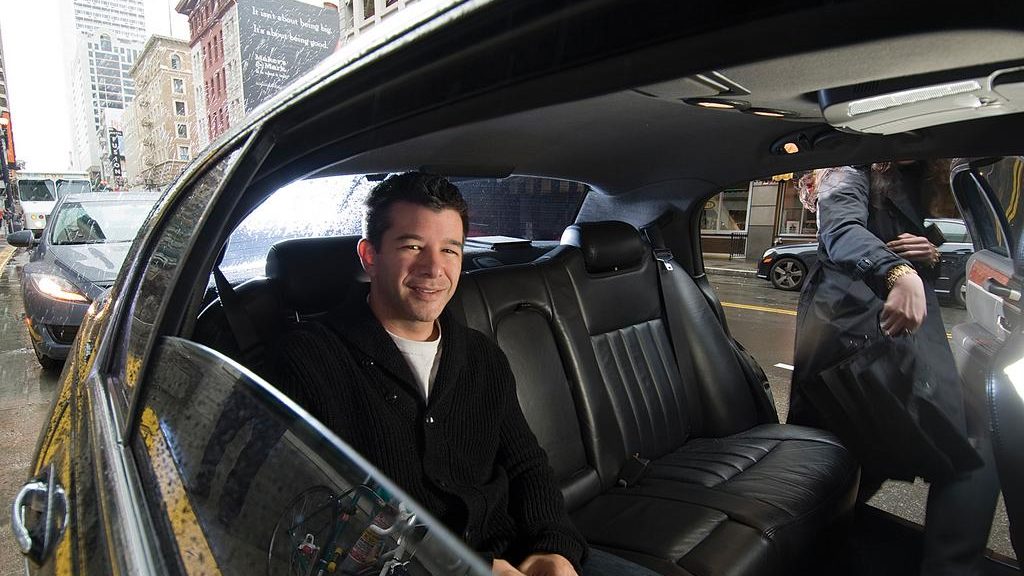Article originally published in the Philadelphia Business Journal on September 16, 2019
Visionaries have changed how we do our jobs and interact with each other. Think about the world before personal computers, cell phones, email, texting, apps, the internet, Instagram, Twitter and Facebook.
One such visionary is Travis Kalanick, co-founder and former CEO of Uber. He transformed the taxicab/ride-hailing transportation business by challenging paradigms through the use of information technology and hiring individuals who use their own vehicles to transport people who traditionally used taxis or other forms of transportation.
An entrepreneur with a great idea and the drive to start a new business is not necessarily the individual with the skills, values and temperament to run and grow the company over the long term.
I wrote an article on the downfall of Kalanick in June 2017. This is an update of that article.
Kalanick had been criticized for Uber’s unethical practices in evading municipal ride-share regulations, accusations of technology theft by Google and his disregard for the financial condition and treatment of Uber drivers who were the backbone of his business model. Kalanick was also criticized for his poor tone at the top and fraternity-like culture that ignored sexual harassment complaints from female employees, causing many to leave the company.
The culture within Uber was certainly not one that would be tolerated by public company investors. Any ethical misstep by the CEO or hint of a scandal has an immediate adverse impact on the company’s stock price.
His drive to win at nearly all costs by pushing ethical and legal boundaries to the limit damaged the company’s reputation and adversely affected its market share.
In February 2017, Uber’s board hired former U.S. Attorney General Eric Holder and his law firm to investigate and make recommendations on how to fix the culture within the company. After the report was issued in June 2017, questions were raised whether Kalanick was the right CEO to oversee the cultural changes that were needed within the then-private company.
In a recent article in Vanity Fair, columnist Mike Isaac chronicles the February 2017 meeting during which the senior leadership team at Uber forced Kalanick to hear the brutal facts of reality, “that he was poisoning the company’s brand.” Isaac writes, “Uber didn’t have an image problem. Uber had a Travis problem.”
It is rare for a CEO who is so identified with a toxic tone at the top and culture to successfully implement change, so it was only a matter of time before it became apparent that Kalanick had to go.
Kalanick stepped down as CEO of Uber on June 18, 2017 but remained on the board. The New York Times reported on June 21, 2017 that Kalanick had been presented a letter from five major investors demanding that he resign. Why didn’t the board of Uber demand his resignation? That’s their job.
Yahoo Finance reported that former eBay and PayPal executive Stephanie Tilenius commented, “Travis’ management style and poor choices are now a case study for every startup that sexual harassment and bad ethics will never be tolerated, regardless of how successful or fast a company grows.”
Trip.com CEO Travis Katz, in the same article, commented, “There has always been a sense that in Silicon Valley, growth is the only thing that matters. Kalanick’s resignation sends a message that we have entered a new era, where growth, without a fundamental sense of decency, is simply not good enough.”
A fundamental sense of decency is always required for the long-term success of any enterprise. Not only is it the right thing to do, but the public demands it.
The board hired Dara Khosrowshahi as the new CEO of Uber. Khosrowshahi, the former CEO of travel group Expedia, is an experienced business leader who is changing the culture at the company. Uber went public on May 10, 2019. It is hard to imagine a successful IPO if Kalanick had remained as the CEO.
The boards of startup companies usually consist of colleagues of the CEO, investors or other stakeholders and, as a result, may not in a practical sense be independent. Nevertheless, the board has the responsibility to ensure the CEO espouses the right tone at the top and nurtures the right culture. It took too long for the board of Uber to launch the outside investigation by Eric Holder.
Boards also have the responsibility to know when it is time to transition the leadership to an individual with the background and experience needed to take the company to the next level, even though that might be a difficult decision for them to make and for the founding CEO to hear. In Uber’s case, it was outside investors who demanded that Kalanick resign. However, it was really the board’s job to do so.
A lesson for all boards: Not all founders will have the skills to take the company to the next level. If the founder CEO isn’t cutting it regarding tone, ethics and culture, make a change before change is forced upon you by the company’s investors.
Stan Silverman is founder and CEO of Silverman Leadership. He is a speaker, adviser and nationally syndicated columnist on leadership, entrepreneurship and corporate governance. Silverman earned a Bachelor of Science degree in chemical engineering and an MBA from Drexel University. He is also an alumnus of the Advanced Management Program at the Harvard Business School. He can be reached at Stan@SilvermanLeadership.com.


And it looks as though We Work is becoming another case in point. More directly the self-serving decisions of Adam Neumann have left the company financially troubled and in a condition that an IPO is not possible without remedy. What lessons for graduate case study here too !
Hi Stan,
I thought it interesting that two other forms of personal transportation were reflected in the car window: a bicycle and a person walking.